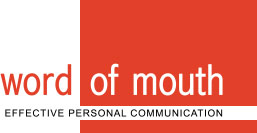Eliminate um’s, ah’s and other fillers when you speak
May 26, 2015
Anxiety, uncertainty, poor focus or habit often cause us to insert fillers or ‘verbal crutches’ when we speak – words such as “um”, “ah”, “you know”, “so”, “but”, “basically, “actually” or repetitive phrases such as “as you would know”, “generally speaking”, “well basically” or “I personally”. These words and phrases add no additional meaning to our message – in fact they detract from it. Overuse of fillers can result in us giving others the impression that we are unsure or tentative about our topic. We may not be aware we are using them. Listeners can find them quite irritating and distracting. They can certainly dilute our message and the impact we make on others:
Good communicators think before they speak and monitor what they say as they speak. This is the key to you eliminating these pesky words, to mastering an effective speaking style that helps you to project an air of confidence and achieve clarity of message. Here are some tips to significantly reduce your use of fillers when you speak:
- To get started, challenge yourself and record your voice (likely using the voice recorder on your smart phone or other device) when you are speaking on another phone or in conversation with someone face-to-face. Listen back to the recording and establish when, where and which fillers you use. Now at least you have some data to help you set more specific goals. Write down that/ those goals and set a time-frame.
- Next, choose a topic and talk to yourself (without an audience) for 1-3 minutes focusing on slowing your speech and eliminating the fillers. Add some pauses between your ideas and feel comfortable with the silence. Record yourself and listen back.
- Now you’re ready for ‘real world’ practice. Choose short, easy-going and slow-paced conversations, either face-to-face or on the phone and focus on avoiding the fillers. Listen to yourself as you speak so that you monitor the words as you say them. If you notice a filler, just keep talking but try next time to stop yourself saying it. Add pauses with silence.
- Gradually build up to longer, faster, more complex and stressful conversations or presentations with multiple listeners. Remind yourself as you go into each situation about your goal.
- Ask other people to give you feedback about your use of a particular filler at a time you specify.
- Choose a ‘speech buddy’ or someone you have regular contact with during the day, for example a colleague, who you can focus on achieving your goal every time you speak with them. They don’t need to know you have chosen them. Choose someone at work and at home.
- Keep up the regular recordings to track your progress and keep your focus on your goal!
